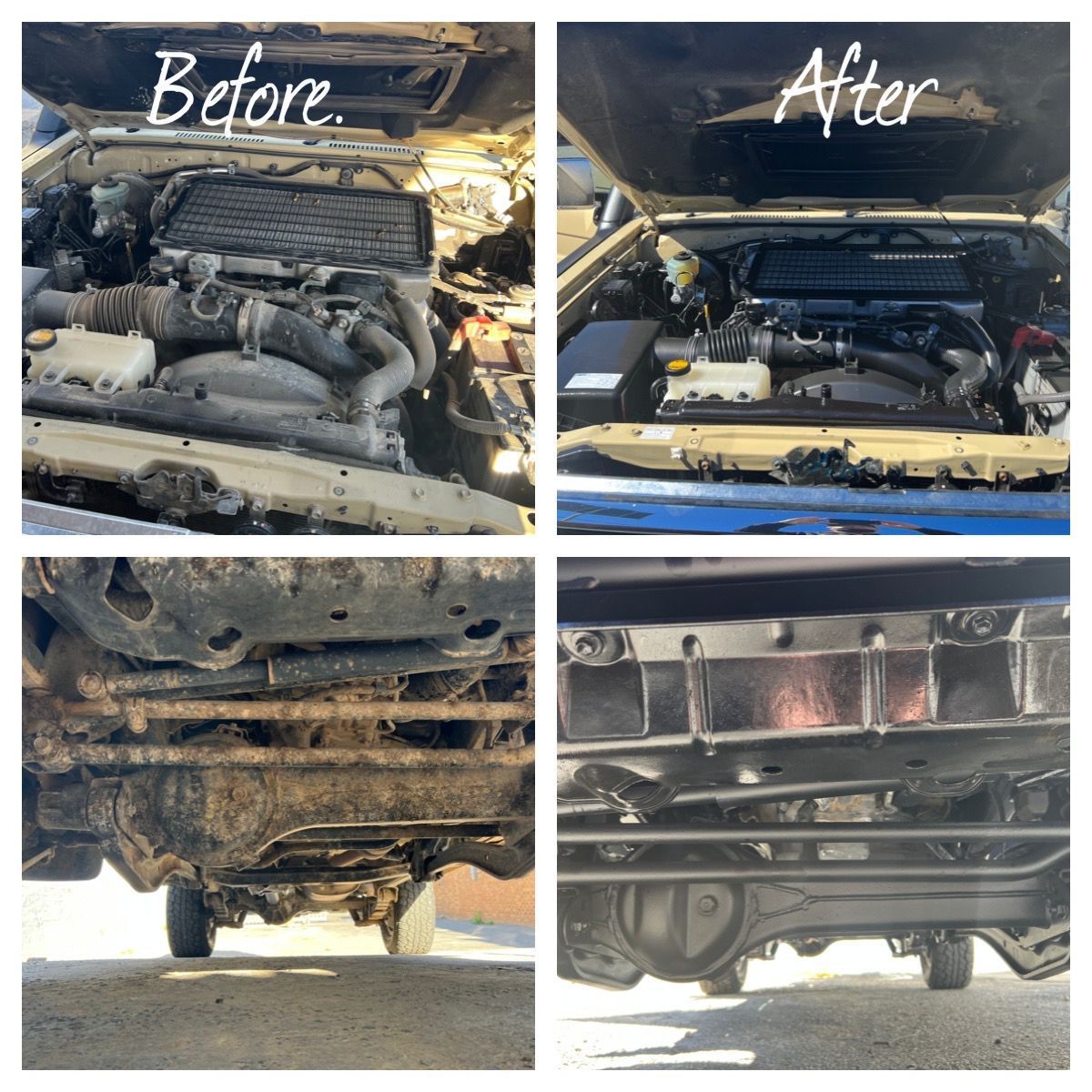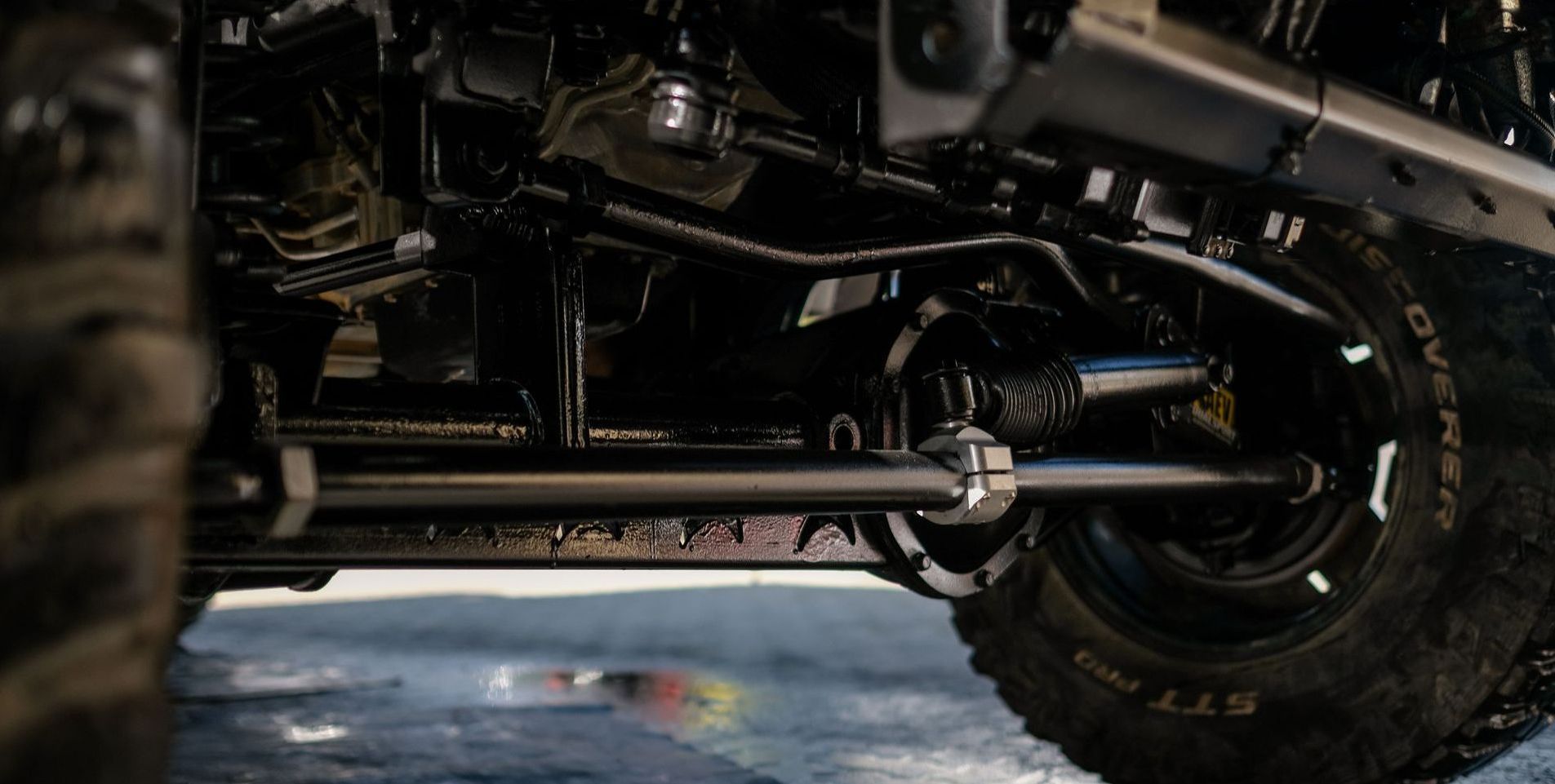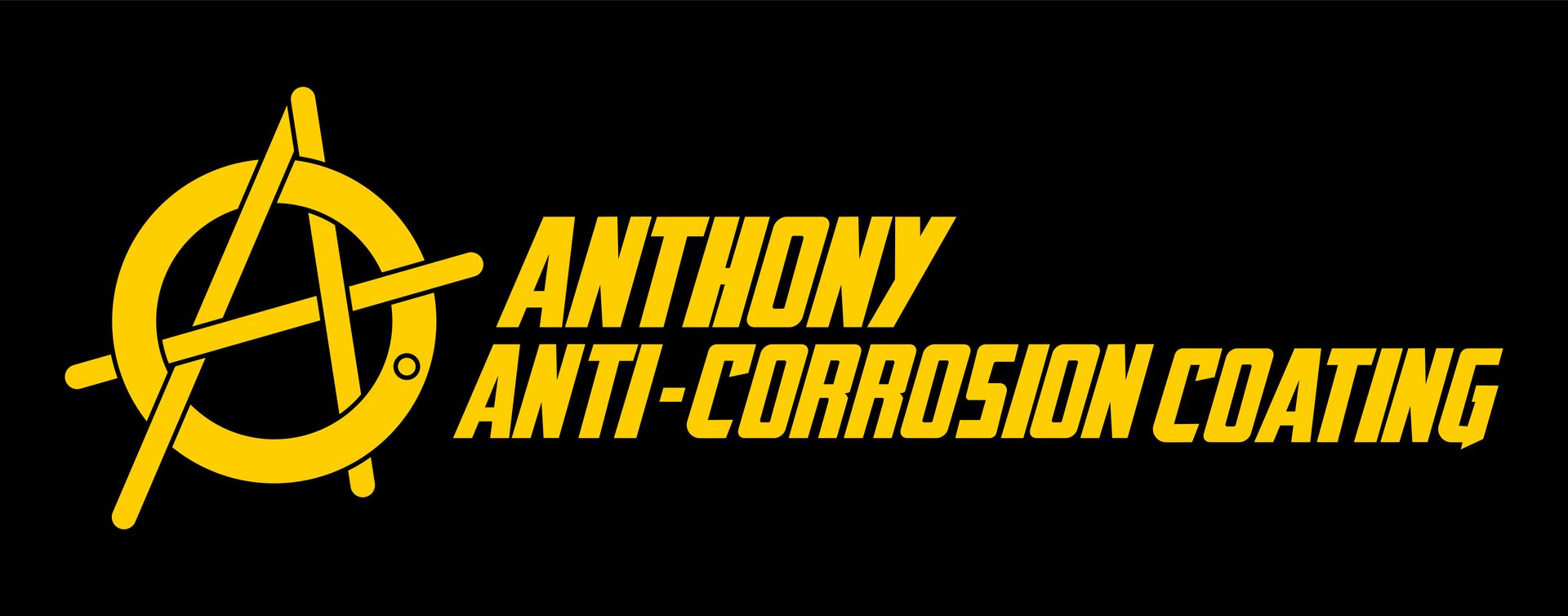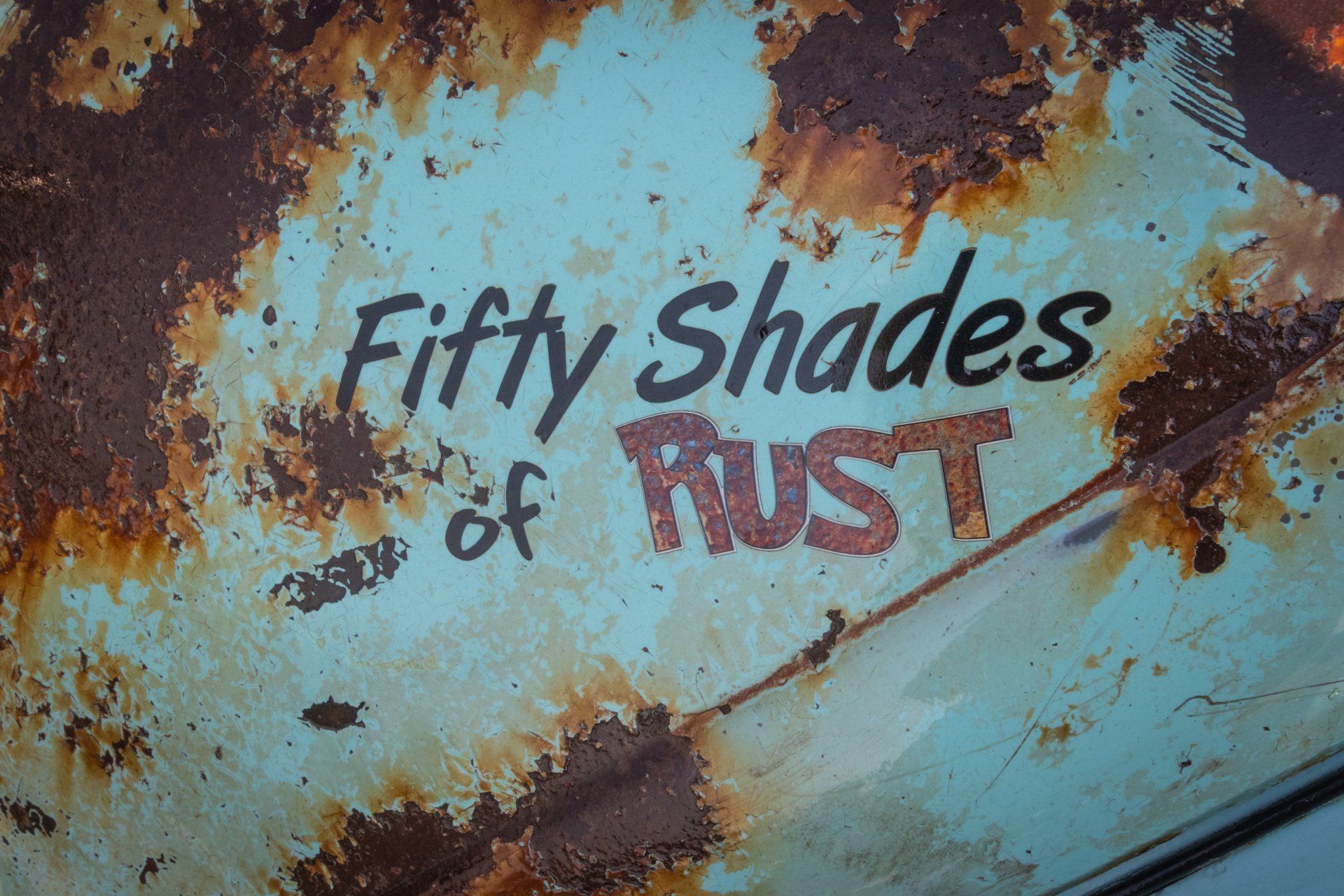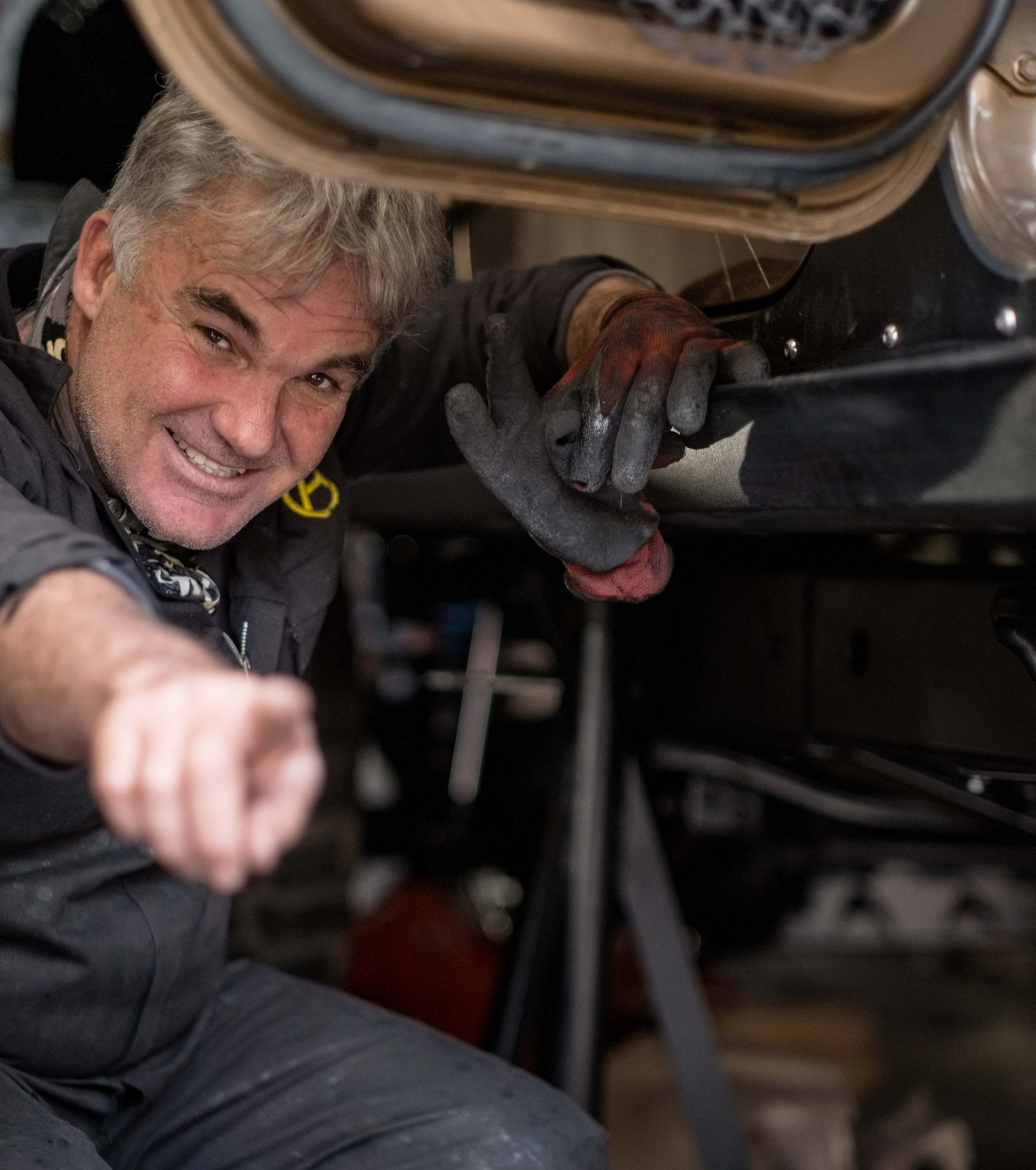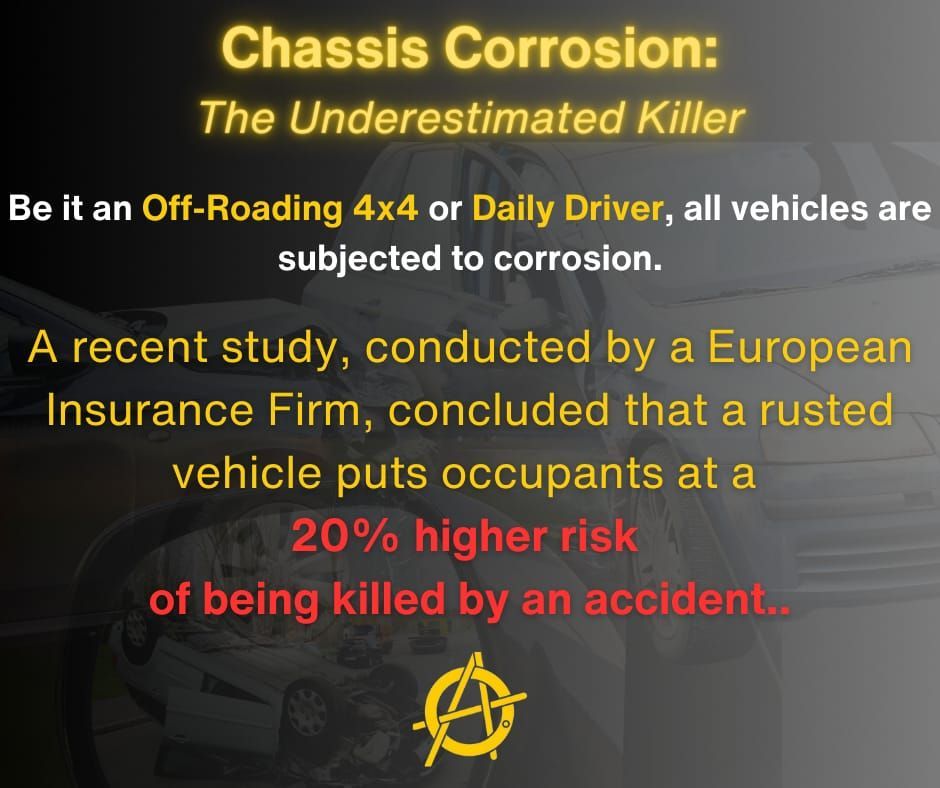Everything you need to know, and more.
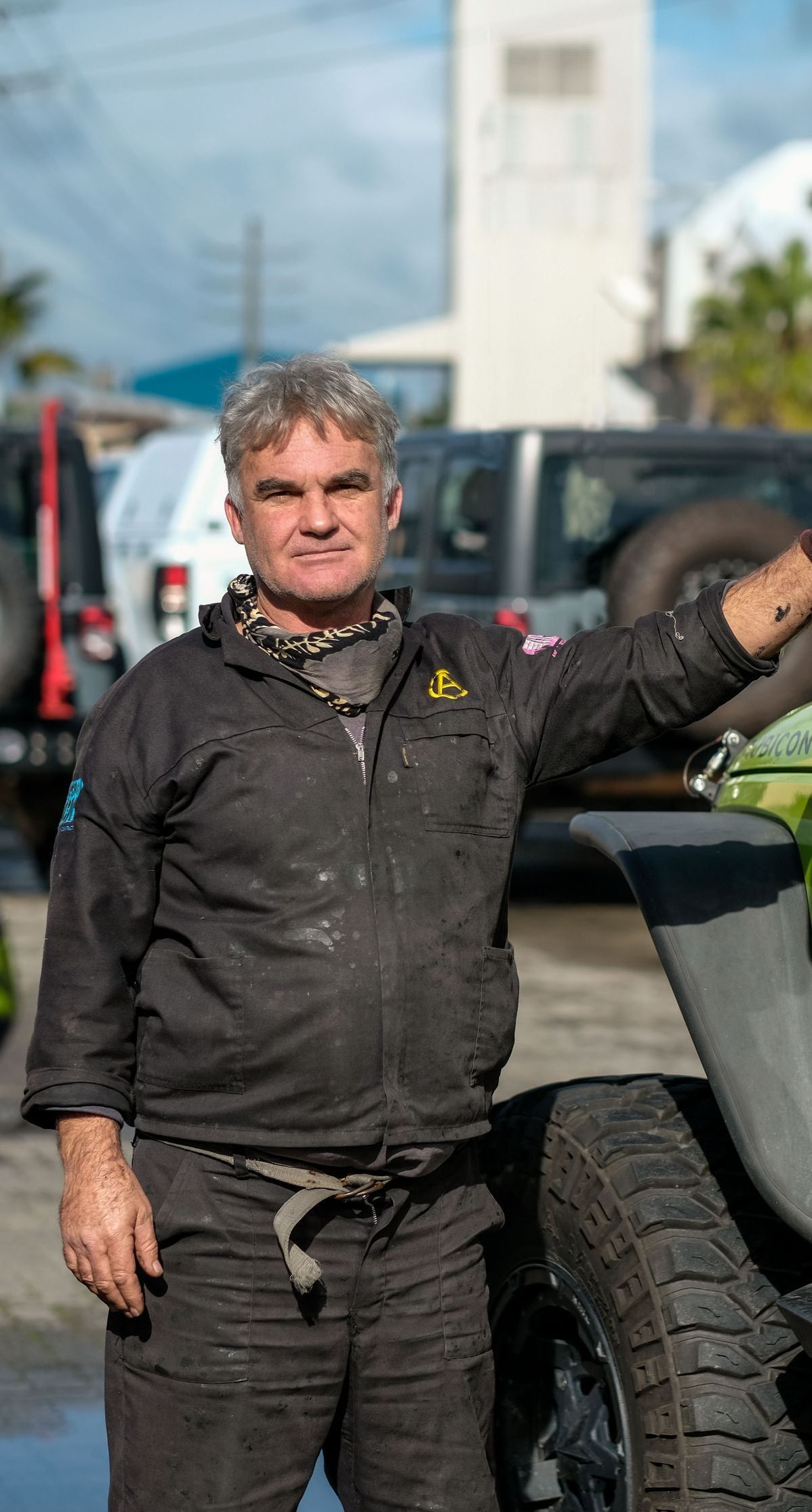
FAQ
You asked, and we sat down around a fire, and put together all the answers.
Q. Where are you based? Do you have branches in other provinces?
A. We are based in Parow East, Cape Town. Sadly, this is the only location currently. That said, Cape Town is awesome this time of year! Come down for a wine tour and let us sort that chassis!
Q. How long have you been treating vehicles?
A. Anthony, a bespoke auto-cosmetician, has been detailing high end vehicles (think “investment cars”) for 30 years. During this time, he built up a massive knowledge base, investigating and experimenting with corrosion solutions as an add on to detailing. In 2018 Anthony perfected the process and secured a manufacturer who designed and manufactures the coating he uses to this day. This is now our core business, and he has launched a range of DIY products to ensure that the entire vehicle, from chassis to roof, is protected against corrosion.
Q. Do you only work on 4x4 vehicles?
A. All vehicles are subject to corrosion. Even your day-to-day vehicle that is stored in a garage. If it fits into our workshop, we can work on it. All types of vehicles, trailers, horseboxes, caravans, and more are welcome.
Q. How long does it take to complete a chassis treatment?
A. A minimum of 5 to 6 working days. Ideally, we ask that vehicles are booked in on a Monday, to be collected the following Monday.
Prep and cleaning alone take 3 days, with multiple coatings that follow after. These coatings need time to flash off before we apply the next.
Anthony’s chassis treatments are renowned for the attention to detail and thorough application.
We do not take shortcuts.
Q. What is included in a chassis treatment?
A. Our standard chassis treatment includes:
· Entire chassis, underbody, wheel wells and hubs.
· Chassis cavity
· Engine bay detail (by hand) and treating nuts, bolts and hinges around the engine bay.
· Bonnet cavity
· Door panels (cavity)
· Nuts bolts and hinges around the door panels.
The gearbox, exhaust system, brake calipers, shocks and all rubber and plastic components underneath the vehicle is wrapped prior to coating.
Q. Why don’t you coat the gearbox and exhaust?
A. Gearboxes are designed to allow for airflow, and it is never a good idea to coat them for the risk of overheating. Our de-rusting process will clean off any rust stains and we do our utmost to restore the gearbox to its original state.
Exhaust systems go through incredible temperature changes in a short space of time. Any coating will only last a few months before peeling off and your vehicle will smell like a paint shop throughout. Rather invest in stainless steel system.
Q. I am busy with a project vehicle. When should I bring it in for the chassis treatment, before or after I have tended to the body and upgrades?
A. We recommend that you do everything else first, then bring it to Anthony as the very last step in your build. Because of his years of detailing, he ensures that there is no overspray on the body, and that the vehicle leaves our shop looking as close to showroom condition as possible.
Q. What guarantee do you offer on your work?
A. It is impossible to predict how a vehicle will be used after we have completed a chassis treatment. It could be used as a day-to-day driver, stored in a garage, or it could go off on an adventure through the salt mines of Botswana or the Atlantis Dunes.
With this in mind, we offer a free touch up when you bring in your vehicle every 6 – 12 months for a paid for chassis clean and inspection.
This covers stone chips, sandblasting and normal wear and tear. Mechanical removal is excluded.
No paint is bullet proof, so chips and sandblasting can occur. A twice per year visit will ensure a rust-free chassis for many years to come.
Our free touch up offer is only valid if you follow our maintenance program and use Anthony Approved products as a maintenance regime.
We are also in the process of issuing a “corrosion maintenance book”, like your service history book, with every treatment completed.
This book is linked to the VIN number, so the guarantee will pass on to the new owner should you sell your vehicle.
Our paint is guaranteed against:
· Peeling
· Flaking
· Cracking
· Rust Creep
Q Do you steam clean the engine?
A. No. Water and electronics do not play well together. We do, however detail the engine bay by hand from the top, bringing it back to as close as showroom condition as we can.
Q. Do you remove the factory coating?
A. No. Removing the factory coating will void the factory guarantee. Our paint will adhere to the original coating. Any other aftermarket coatings will be removed, at an extra cost. Our paint will adhere to most coatings, but we cannot guarantee that these coatings will not delaminate over time, causing our paint to come off as well.
Q. Can I use bitumen or rubberising on my vehicle chassis?
A. We strongly advise against bitumen, rubberising or any other off-the-shelf aftermarket coatings. In our experience these coatings have very little to no anti-corrosion properties and are not designed for long term chassis protection.
Rubberising and bitumen will trap moisture between the coating and the substrate, resulting in rust creep where the eye cannot see.
Q. Can I spray my chassis with old oil to protect it when I go to the coast for the holidays?
A. Please don’t. You have seen what your old chips pan looks like? Same gunk will form on your chassis. We have developed a hydrophobic DIY oil coating that is easy to apply, does not drip, dries to a touch dry film, and is tested against salt exposure, acid and alkaline drag. It is also a very effective lubricant, which can be safely applied to all ferrous and non-ferrous metals.
Check out the Weekend Warrior in our online shop for short term chassis protection or as a part of your maintenance program.
Our Legion oil has the same properties, with the added bonus of being dielectric. Think WD40, with punch.
Q. Do you use rust converters?
A. No. Rust converters are lovely for DIY projects like garden furniture or fences. On a vehicle chassis we have found them to be less than effective, converting the top layer of rust, leaving the lower layers to continue creeping under the surface. Rust converters start peeling off very soon after application, leaving the substrate exposed to further corrosion.
We use chelating agents and good old elbow grease to remove the rust completely.
Q. How long do I need to wait before I can take the vehicle off road?
A. Our paint will be touch dry upon collection and perfectly safe for normal driving. Please wait 10 days before going off-road, to give the paint time to cure completely.
Q. Why is it important to maintain a rust-free chassis?
A. All vehicles rust, regardless of size, price range and age. Your chassis is the backbone of your vehicle, carrying the weight of the body, engine, passengers, and cargo transported.
A European study found that you are at a 20% greater risk of being seriously injured, or killed, when driving a rusted vehicle.
Chassis rust is not always visible at first glance. Speak to a professional for a detailed inspection to ensure future safety.
Q. Can you remove body rust?
A. Alas, no. Our spray booth is designed for chassis, underbody, and industrial applications. Body rust is best addressed by a reputable panel shop.
Q. I only have a little bit of surface rust on the chassis. Do I really need to attend to it?
A. Yes. Rust is like cancer. It will not stop spreading unless you deal with it aggressively.
Q. What happens if the chassis has corroded so badly that the integrity has been compromised?
A. Depending on the severity of the damage, we can cut out affected areas and replace, or we can direct you to one of our trusted fabricators for repair, after which we will treat the entire chassis for ongoing protection.
Anthony Anti-Corrosion Coatings and Supplies BLOG
